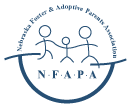Child Protection Bill Passed
A bill that extends and revamps the state’s alternative response procedures in child welfare cases passed July 21, 2020.
Alternative response is a practice that handles low-risk child welfare cases by empowering families to build on their strengths, rather than criminally investigating them or placing them on the Child Abuse and Neglect Registry. Nebraska’s alternative response pilot program has been in place since 2014.
Among other provisions, LB1061, introduced by Sen. Sue Crawford of Bellevue, eliminates the pilot program’s sunset date, removes abandonment of a child for six months or more immediately prior to a report from the list of cases excluded from eligibility for alternative response, provides clearer definitions of response pathways for reports of child abuse and neglect and establishes an advisory group under the Nebraska Children’s Commission to examine the state Department of Health and Human Service’s use of alternative response.
The bill also narrows the types of cases eligible for alternative response. Cases instead will be forwarded directly to the county attorney if they involve:
• a history of termination of parental rights;
• domestic violence involving a caretaker in situations where the alleged perpetrator has access to the child or caretaker;
• someone living in a home where a child lives who is illegally manufacturing methamphetamine or opioids;
• a child has contact with methamphetamine or other nonprescribed opioids;
• a household member who tests positive for methamphetamine or nonprescribed opioids at the birth of an infant who is the subject of the report; or
• absence of a caretaker without having given an alternate caregiver authority to make decisions and grant consents for necessary care, treatment and education of a child and without the caregiver having made a provision to be contacted to make such decisions or grant such consents.
LB1061 passed 46-0 and takes effect immediately.

www.advocatesforfamiliesfirst.org
New Indian Child Welfare Guidelines for
Tribes, States, Courts, and Agencies
A warm welcome to all the new subscribers to this e-news list. Please also visit the website at: www.advocatesforfamiliesfirst.org
New Indian Child Welfare Guidelines for Tribes, States, Courts, and Agencies
A major development in tribal child welfare policy was announced on February 25, 2015. The Bureau of Indian Affairs announced that it had revised –– and made effective immediately –– the Guidelines for State Courts and Agencies in Indian Child Welfare Custody Proceedings. This is the first update in the guidelines since their initial release in 1979.
NICWA hosted a free webinar on Friday, March 13 to explain the revisions. Once available on line, we strongly urge our constiutents to listen to the full webinar for the new guidelines and greater understanding of the values and importance behind them. Watch for an alert to announce its availablility.
Access the new Guidelines here.
Access the Guide to Compliance with ICWA here.
Having a foster youth bill of rights will help your community ensure that youth needs are being met while in care, as well as empower youth to advocate for themselves and others. Foster Youth in Action has created a resource page that identifies the states that have enacted such bills, and includes the content of each bill.
Free Webinars for Caregivers, Leaders and Advocates
As part of our capacity building efforts, Advocates for Families First offers a series of free webinars designed for leaders of support groups and organizations that work with kinship, foster, and adoptive families. All are welcome to participate. Click here to access the webinars.
To register for upcoming webinars or view a recording of past webinars, see information below. Webinars are recorded, so even if you can’t make attend a future webinar in person, you can benefit from the training. Simply register as though attending and after the session is over, we will send a video link of the recording to everyone who wasn’t able to attend.
- Prudent Parenting: Implementation of the Strengthening Families Act Normalcy Provisions
- Improving Messages in Kinship Care, Foster Care, and Adoption
- Behavioral Interventionist Model: Keeping Children with Extreme Challenges Home for Treatment
- Improving Safety, Permanency and Well-Being for LGBTQ Youth
- KinFirst: Making Relatives a First Choice for Children
- Transforming the Adoptive and Foster Care Placements of Children through the National Electronic Interstate Compact Enterprise
- Effective Collaboration for System Improvement
- Be Heard! Passage of the Strengthening Families Act Creates Advocacy Opportunities
- Hidden in Plain Sight: Accessing Funding for Specialized Youth Permanency Services
- It’s Time to Take Better Care of Ourselves! (How to Handle Compassion Fatigue and Prevent Burnout)
- Advocates for Families First Policy Agenda
- Effective Legislative Advocacy Strategies
- Fundraising for Groups
- Developing a Youth Speak Out Advocacy Team
- Starting and Enhancing Support Groups for Adoptive, Foster, and Kinship Families



